Food is a basic need, fundamental to our lives and well-being. And for millions of people around the world, and innumerable health citizens in the U.S., food security is part of daily life in 2023. Furthermore, as the U.S. Congress faces voting on the debt ceiling, the issue of SNAP benefits for nutritional assistance (aka “food stamps”) has been identified as a negotiating line-item by certain Federal budget-cut minded folks.
That’s why the Food Is Medicine Initiative, launched collaboratively between the American Heart Association and The Rockefeller Foundation, is so timely and welcome.
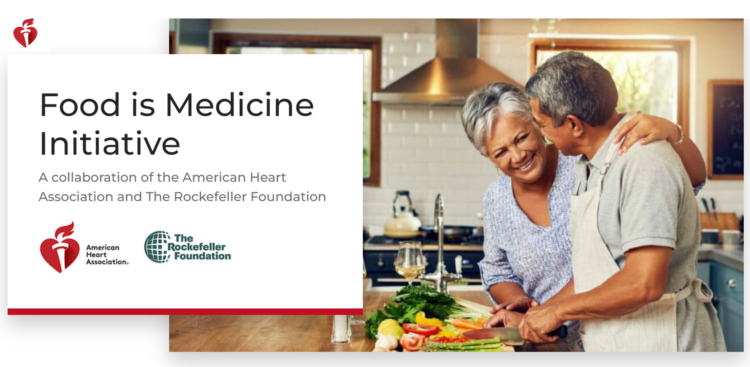
“The vision for the Food is Medicine (FIM) Initiative is to accelerate a future in which millions of patients receive the benefit of a more holistic approach to diet and health, health care professionals know how to target and use FIM approaches to help prevent and manage disease, and payors have sufficient, objective cost and effectiveness evidence for reimbursing FIM programs,” the program’s home page explains.
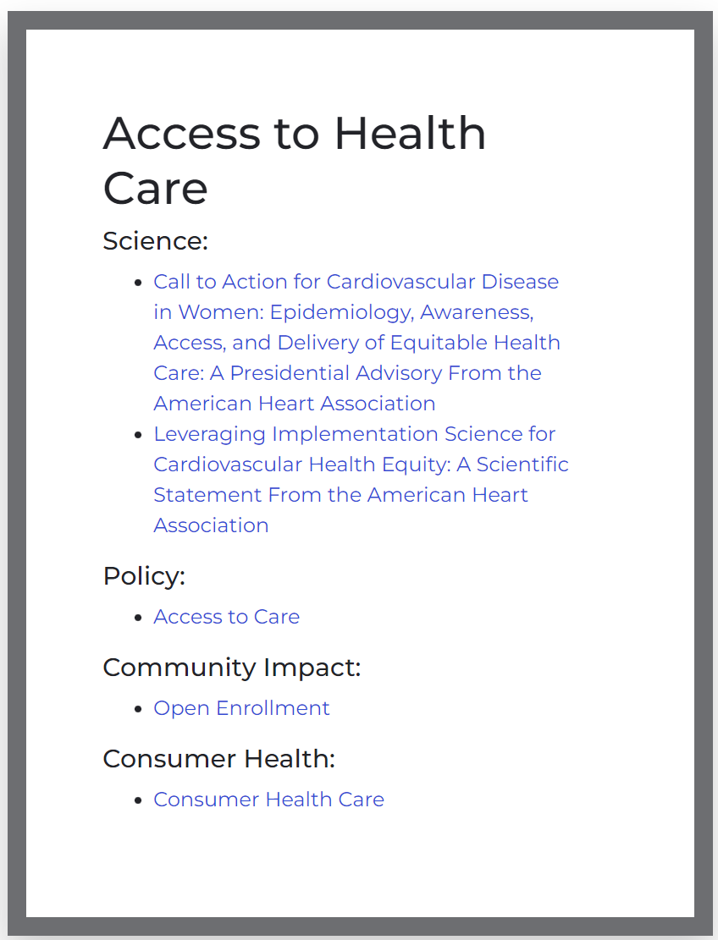
This partnership is focused on people who are at higher risk for heart disease — conditions that are generally amenable to lifestyle changes such as healthy food shopping and eating, exercise and activity, and mindfulness practices — all with growing evidence bases.
Like most non-communicable diseases, there are both genetic and external drivers-of-health (call them social determinants or health if you like) that are risks for heart disease. In the first chart, AHA and Rockefeller call out access to health care issues — science, policy, community impact, and consumer health services that are part of the external ecosystem for a person’s medical care and self-care linkages.
It’s important and impactful that these links include one for Open Enrollment to health insurance. Access to health plans, which are an on-ramp to accessing health care services, are a key social determinant of health along with lifestyle and environmental factors.
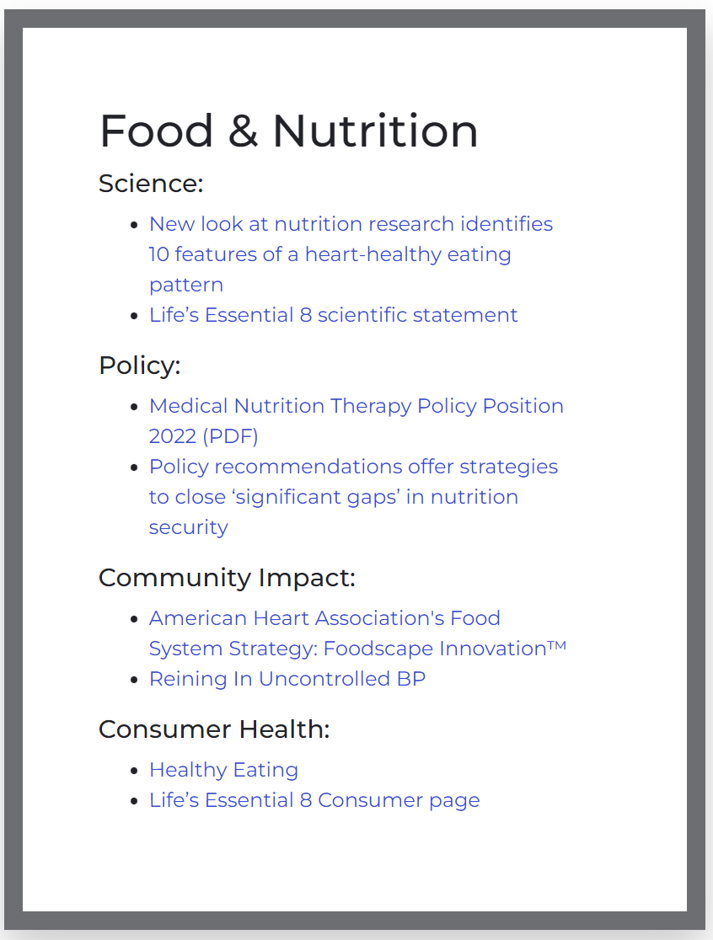
Next to the Access to Health Care link box on AHA’s FIM page is a box of links for Food & Nutrition — with access to information on the science (nutrition research) as well as AHA’s Life’s Essential 8 statement on the eight
In addition, consumers can read about nutrition policy, AHA links to food and blood pressure management, and more consumer health tactics on healthy eating.
The Research Advisory Group for the program embodies comprehensive expert backgrounds including one of my favorite health economists, Kevin Volpp from the Wharton School at the University of Pennsylvania, along with Dr. Mark McClellan from the Duke-Margolis Center for Health Policy and former FDA Commissioner, Cheryl Anderson who is a leader in longevity science at UC San Diego, Donald Lloyd-Jones from Northwestern’s Feinberg School of Medicine who is a leader preventive medicine, and other leaders in their field who are passionate about food’s role in health and well-being.
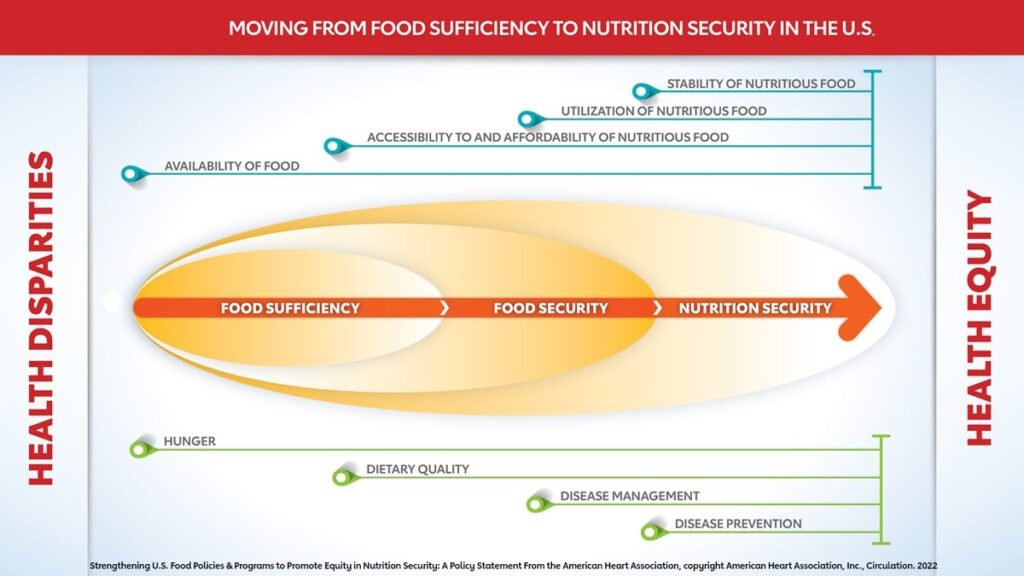
Health Populi’s Hot Points: The White House convened a meeting on nutrition security in America in September 2022, discussed here in Health Populi at the time.
I wrote, “In the wake of the COVID-19 pandemic and current economic stress facing U.S. families and households, the Biden-Harris Administration is bringing together experts and advocates addressing hunger, food and health including Chef José Andrés (who must be cloning himself these days dealing with all the world’s emergencies and feeding the people impacted in those geographies, globally via the World Central Kitchen) along with relevant Cabinet Secretaries for Agriculture and Health, and others. The agenda topics cover ensuring affordable food for all children and families, food-as-medicine, looking locally to grow food closer to homes, creating communities baked with activity-opportunity for health citizens, and forging public-private partnerships.”
One of the stakeholders committing to this effort was indeed The Rockefeller Foundation, AHA’s partner on the FIM initiative along with their partner Kroger, the grocery chain. This week’s announcement of this FIM program is the official launch of the Research Initiative announced at the White House Conference.
A key goal and outcome for this big project is to move from food insufficiency to nutrition security in America, as the last graphic illustrates — from a state of hunger for millions of health citizens in America to a state of disease management and ultimately, disease prevention.
This also helps to pivot the U.S. in a macro way from health disparities toward health equity.
Kudos to the partners…..I’ll continue to amplify these efforts to promote Food-as-Medicine for all people.


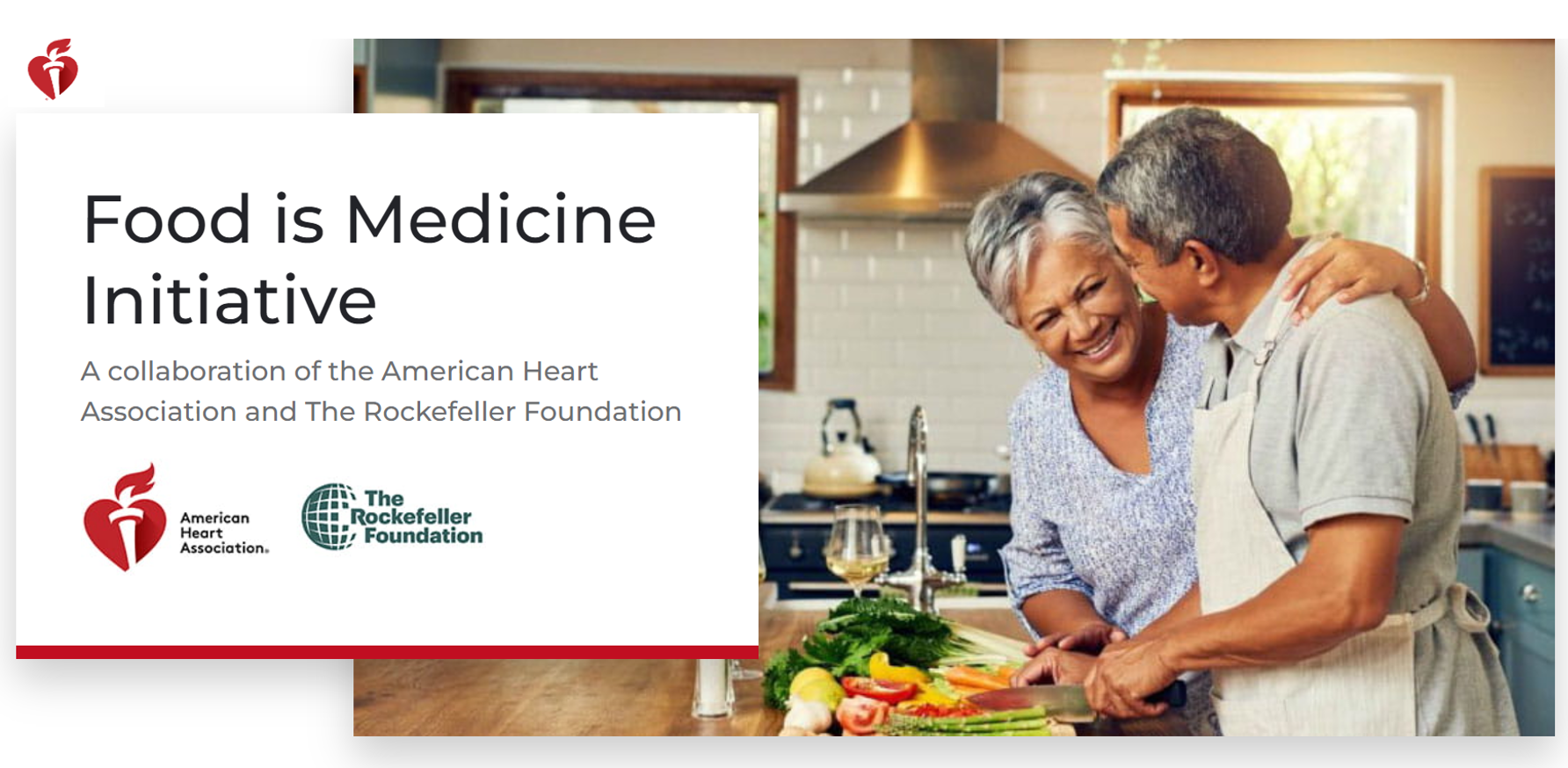


 Thank you, Trey Rawles of @Optum, for including me on
Thank you, Trey Rawles of @Optum, for including me on  I was invited to be a Judge for the upcoming
I was invited to be a Judge for the upcoming  For the past 15 years,
For the past 15 years,